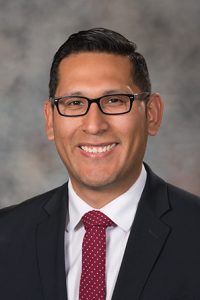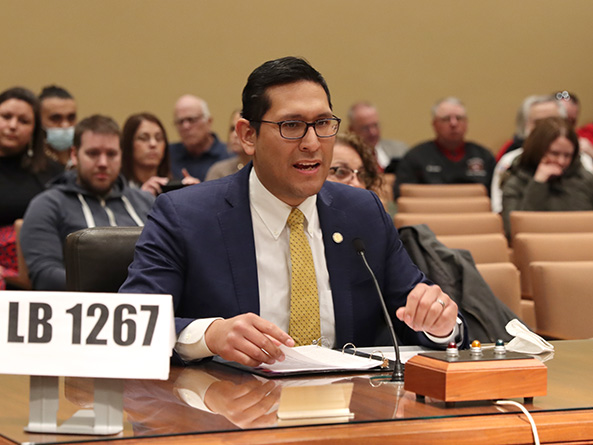Proposal would fund health equity liaisons
Nebraska would use federal pandemic relief funds to facilitate the collection of health inequity data by several state commissions that serve the state’s minority populations under a bill considered Feb. 23 by the Appropriations Committee.

Under LB1267, sponsored by Omaha Sen. Tony Vargas, the state would appropriate $2.5 million in fiscal year 2023 from American Rescue Plan Act funds allocated to Nebraska to five state commissions. The bill would allocate $500,000 to each of the following entities to hire health equity liaisons:
• Commission on Indian Affairs;
• Commission on Latino-Americans;
• Commission on African American Affairs;
• Commission for the Deaf and Hard of Hearing; and
• Commission for the Blind and Visually Impaired.
Each commission’s liaison would work with the state Department of Health and Human Services, the University of Nebraska and other organizations to collect data and would be required to submit a report to the Legislature no later than Oct. 1, 2024. The report would outline recommendations to address health inequities for the population served by each respective commission.
Vargas said DHHS has found that there are “moderate to significant disparities” between white residents and people of color in Nebraska in health status, health coverage and ability to see a physician. These inequities put people at a greater risk of illness and death from COVID-19, he said.
In addition, Vargas said, the pandemic “exacted a steep toll” on certain populations of people with disabilities and created new barriers to access to health care.
“By providing this funding to the commissions, the goal is to have tangible recommendations for addressing health disparities that are specific to each constituency,” he said.
Kim Davis, advocacy specialist for the Nebraska Commission for the Deaf and Hard of Hearing, testified in support of LB1267 on behalf of the commission. She said the COVID-19 pandemic has exacerbated challenges faced by Nebraska’s deaf and hard of hearing community, especially in medical settings.
Social distancing requirements and limits on the number of people allowed in hospital rooms made effective communication even more difficult for deaf and hard of hearing patients, Davis said, because it hampered access to interpreters.
Lazaro Spindola, former executive director of the Commission on Latino-Americans, also spoke in support of the proposal. Even before the pandemic, the state’s Latino population suffered from high levels of poverty and limited access to good paying jobs, housing and health care, he said. The pandemic magnified the impact of those inequities, Spindola said, especially for individuals employed in industries deemed essential, such as meatpacking.
National studies show that Latino populations may experience more severe cases of COVID-19 and have a higher mortality rate, he said, but Nebraska lacks similar state-level data.
“Without this information, it becomes virtually impossible to create programs that will overcome the inequality,” Spindola said.
Representing the Commission on Indian Affairs, executive director Judi gaiashkibos also testified in favor of LB1267. All the state’s commissions that serve minority populations face health disparities, she said, and the Indian commission would welcome additional funding to study ways to improve the situation.
No one spoke in opposition to the proposal and the committee took no immediate action.


